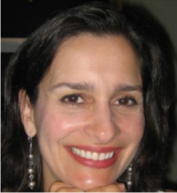
By Lydia Wisz
A group of forward thinking “movers and shakers” in the clinical world together on November 9 to discuss how food profoundly matters. The Nutrition in Healthcare Leadership Team (NHLT) is a subcommittee of the San Diego County Childhood Obesity Initiative, a program facilitated by Community Health Improvement Partners. This public health program is supported through partnerships with, Health Care Without Harm and San Francisco Bay Area Physicians for Social Responsibility.
All of these groups have coalesced to strengthen San Diego’s healthcare systems to promote healthful and sustainable food practices. This training inspires us to take a serious look at how our western diet is linked to our western disease epidemic.
Food can be seen as a medicine or a toxicant. What we eat can supply us with the proper fuel to healthfully nourish our bodies, but can also harm us. The ugly truth is that our current food system does not promote the foods that would allow us to thrive such as fresh fruits and vegetables, lean proteins, whole grains and fiber-rich foods. On the contrary, our food system promotes highly-refined processed foods that are calorie-dense, lacking in nutritional value and readily available to just about anyone. Discussion at the event led to the role healthcare can play in improving our environment, public health, and the food system.
I’ll give you a tour of the program, by highlighting a brief description of each of the speaker’s topics.
Leading off the program was a brief Welcome and Introduction from Kendra Klein, PhD (c), of SF Bay Area Physicians for Social Responsibility, Barbara Hamilton, Systems Sustainability Manager from Palomar Health and co-chair of the Nutrition in Healthcare Leadership Team and JuliAnna Arnett from Community Health Improvement Partners. Next an in-depth presentation was given by Gordon Saxe, M.D., PhD, MPH from UC San Diego’s Center for Integrative Medicine. In his presentation, the 5 pillars of a healthy diet were explored in which he explained the importance of each pillar and how they could be better implemented in healthcare. His talk next discussed a new Natural Healing and Cooking Program being offered at UCSD’s Center for Integrative Medicine that would provide participants a strong framework for leading healthier lives.
The second speaker Ted Schettler, M.D. MPH, spoke of promoting more work in the area of healthier food offerings through local and state policy implementation. A systems approach to food and health needs to be part of a better ecological framework that endorses the reduction of environmental contaminants that have an effect on fetal development, low birth weight, diet-related chronic diseases that cause inflammation as well as oxidative stress and insulin resistance.
The third speaker, Melanie Fiorella, MD from UC San Diego’s Center for Integrative Medicine, maintained our industrialized food system negatively impacts on maternal and child health. She explained we could limit our exposure to these toxicants by buying certain foods organically. In avoiding the “dirty dozen” of fruits and vegetables that typically have the highest amount of pesticide residue, we can minimize unnecessary exposure to pesticides that can lead to cancer. Kendra Klein, PhD(c), SF Bay Area Physicians for Social Responsibility followed Dr. Fiorella’s dialogue with suggestions on how to move ideals to action with healthy food in Healthcare. Several members from the State of Healthy Food in Healthcare panel included presentations from several hospitals involved with the NHLT, including Kaiser Permanente San Diego, Kindred Hospital, Scripps Health, Sharp Health Care, and Palomar Health. Each hospital and hospital system shared briefly about their efforts to advance healthful, sustainable food and beverage practices within their hospital(s) and the community at large.
Lastly, there was a “Call to Action” by Christine Wood, M.D. FAAP, CLE, KidsEatGreat and Co-Chair of the San Diego County Childhood Obesity Initiative who tied all of the speakers’ main objectives together into a plan that can be effective and life changing. Some of the salient points she covered were in recognizing the role that the environment plays in pediatric obesity and why it is important for healthcare professionals to take more of an active role in community advocacy as well as identifying resources that are readily made available to physicians.
Other resources that could make significant impact include addressing better regulation of the SB12 and SB965 School Nutrition Standards, taking action on Re-Think Your Drink through the California Department of Health as well the AAP Section on Obesity and the AAP Institute for Healthy Childhood Weight. Lastly, this “Call to Action” can have a significant impact on the health of our community by leveraging the expertise, credibility and experience of physicians to advocate for the health and well being of our children and their families. Dr. Wood encouraged interested physicians, nurses, and healthcare professionals to get involved locally and reminded everyone that the NHLT is open to healthcare professionals interested in a more sustainable food system.
All agreed that change can be made by connecting healthcare to healthy food from a sustainable food system life cycle. This regional effort could evolve into broader national consciousness and action.
In a grassroots effort, many healthcare professionals are delving further into how their roles in healthcare can change the way the food system works and how that will affect health outcomes. After all, isn’t this what clinical education and advocacy should teach?



















Recent comments